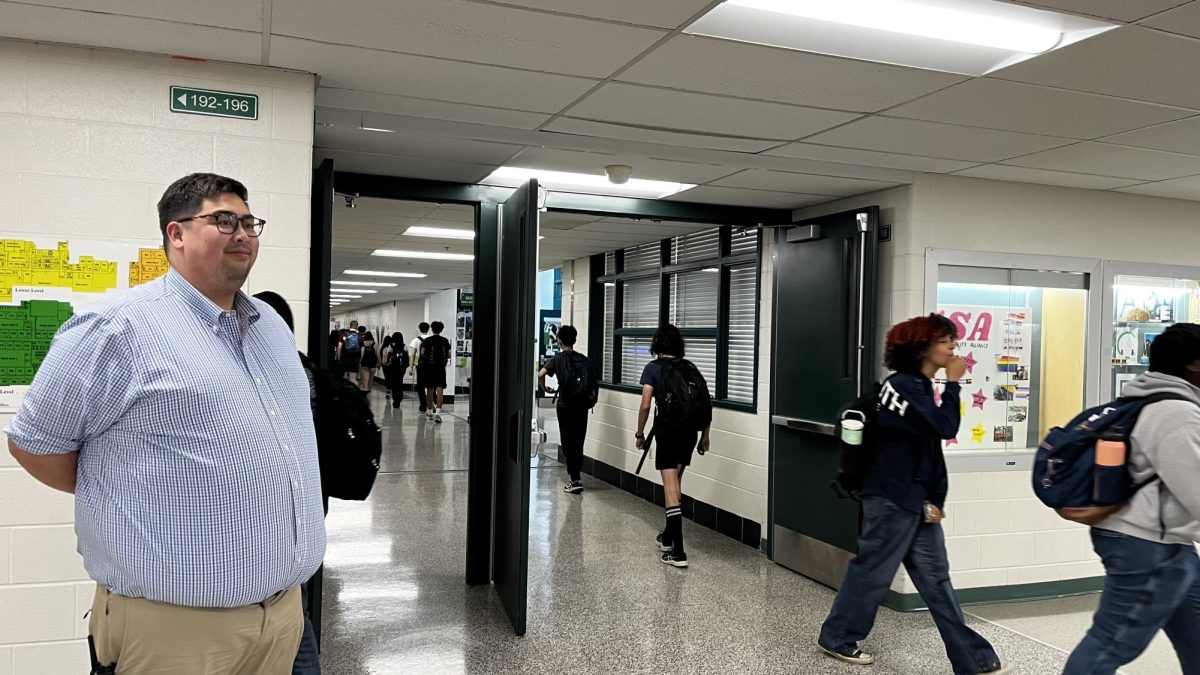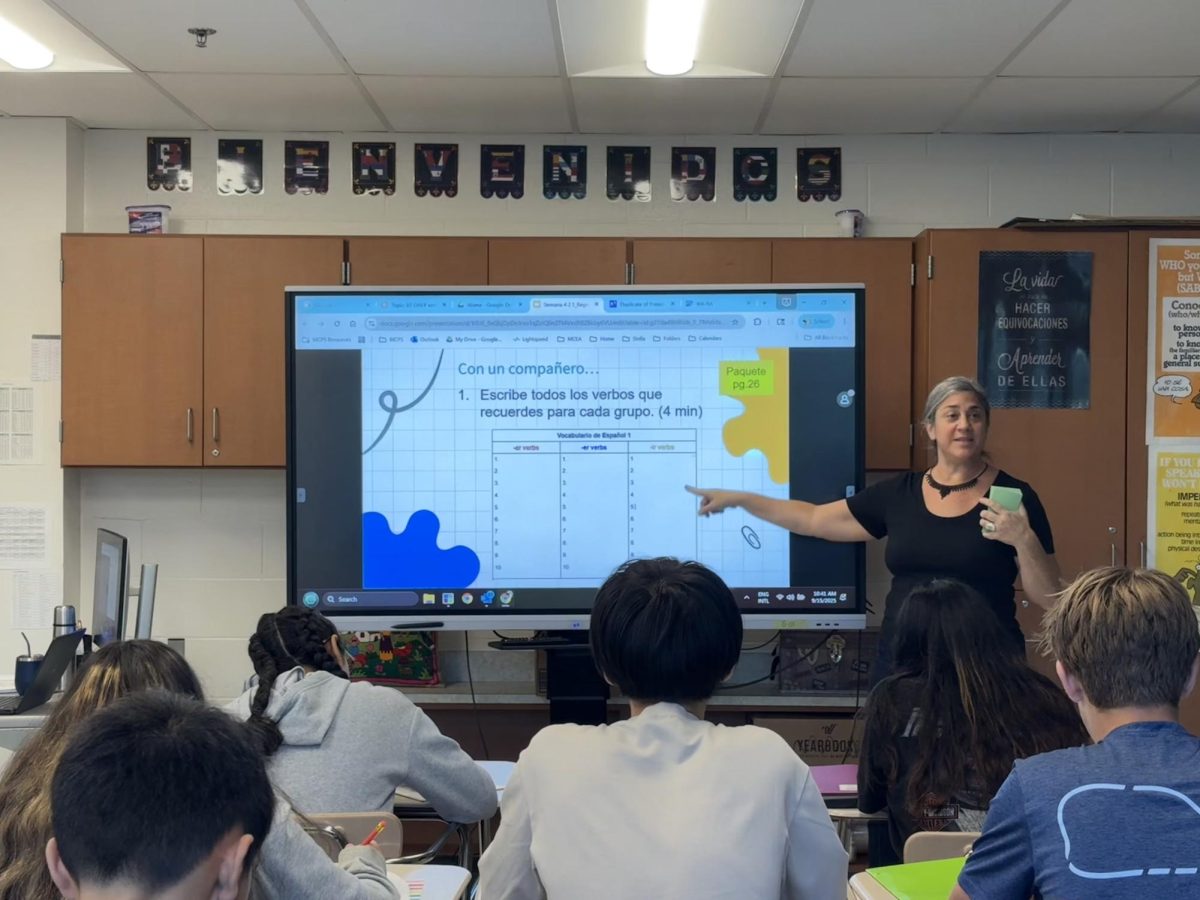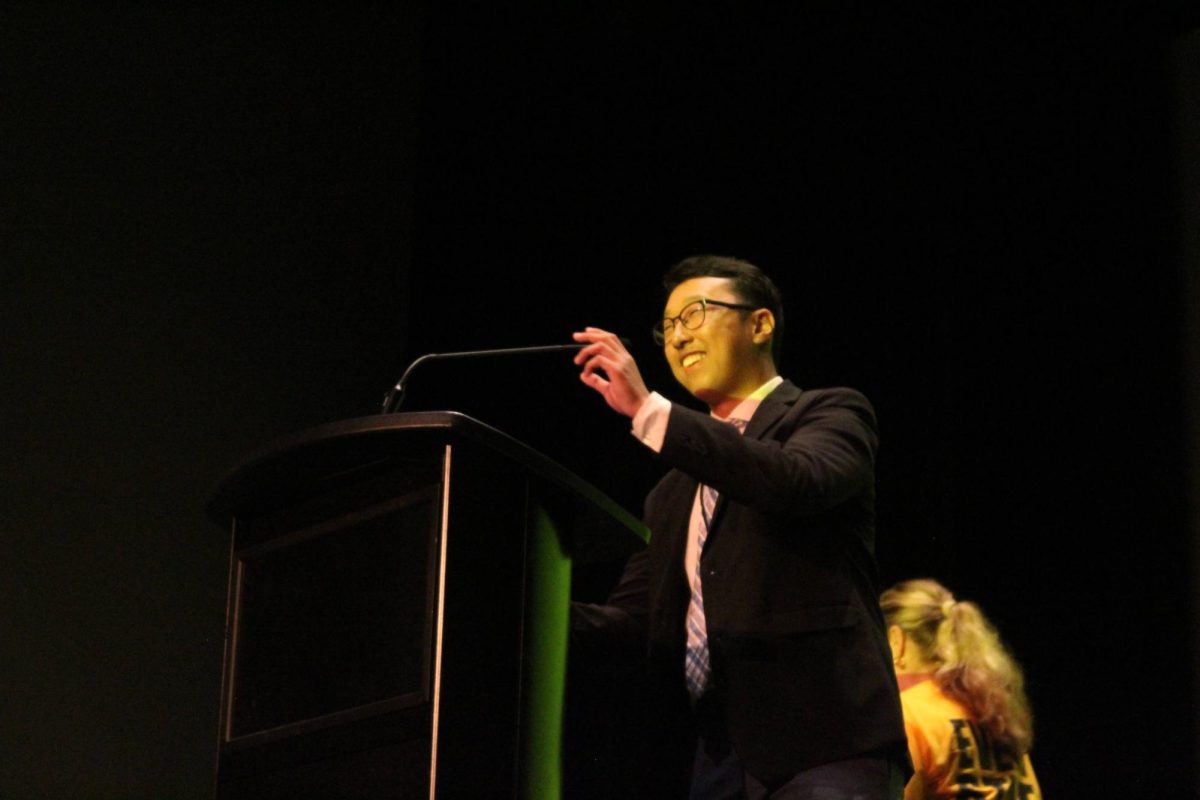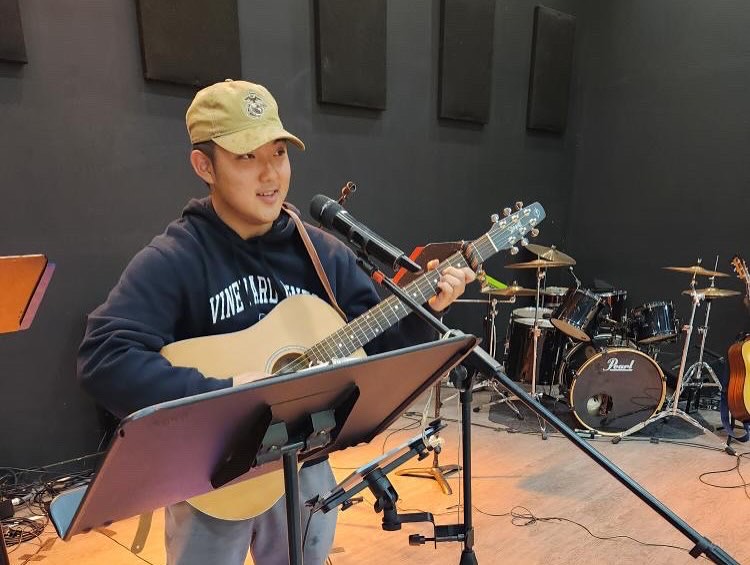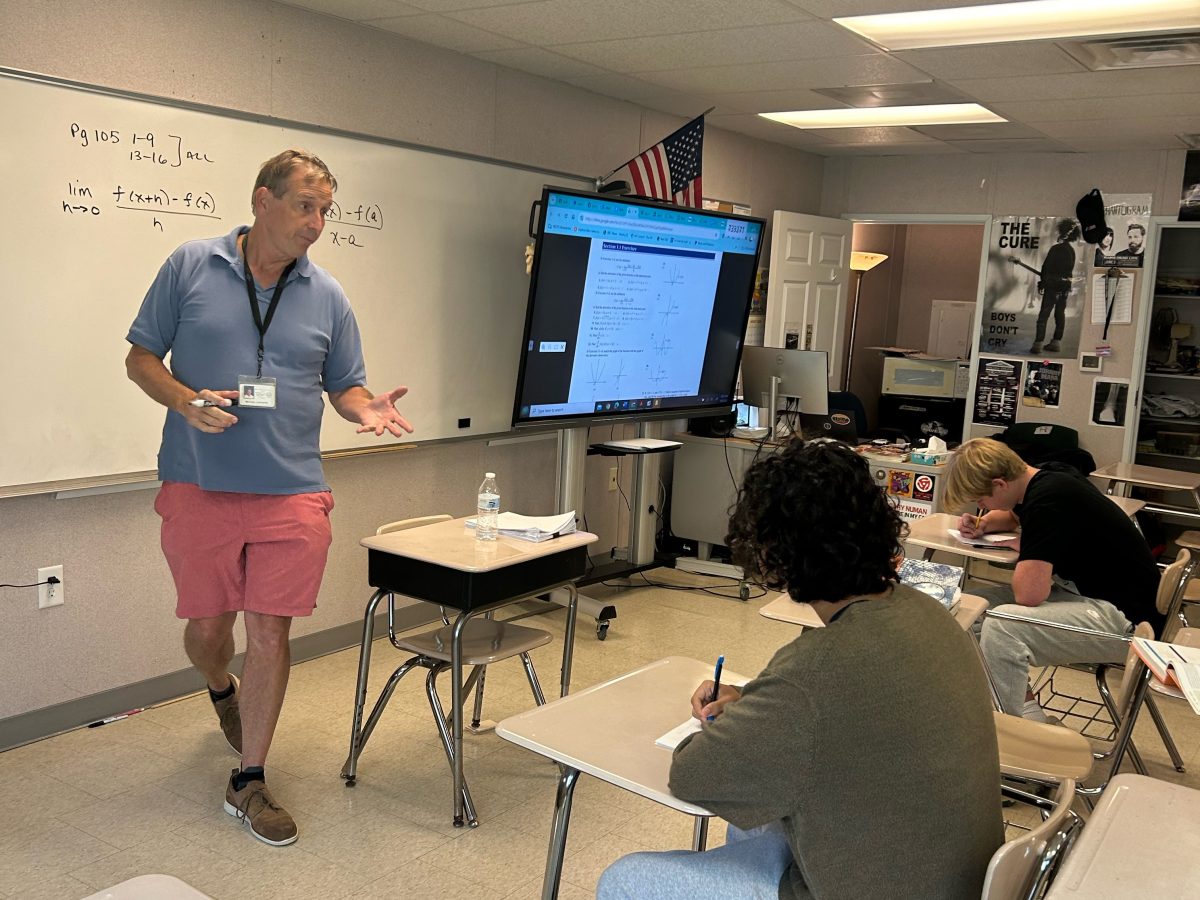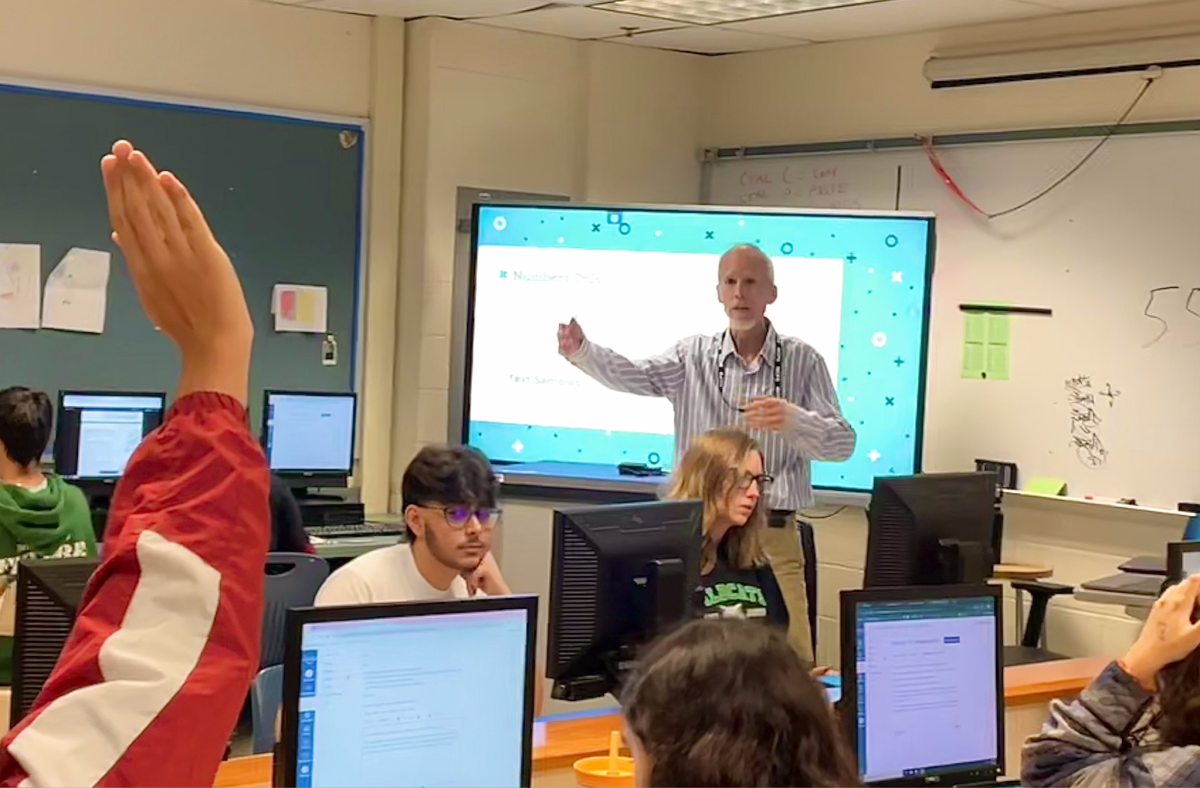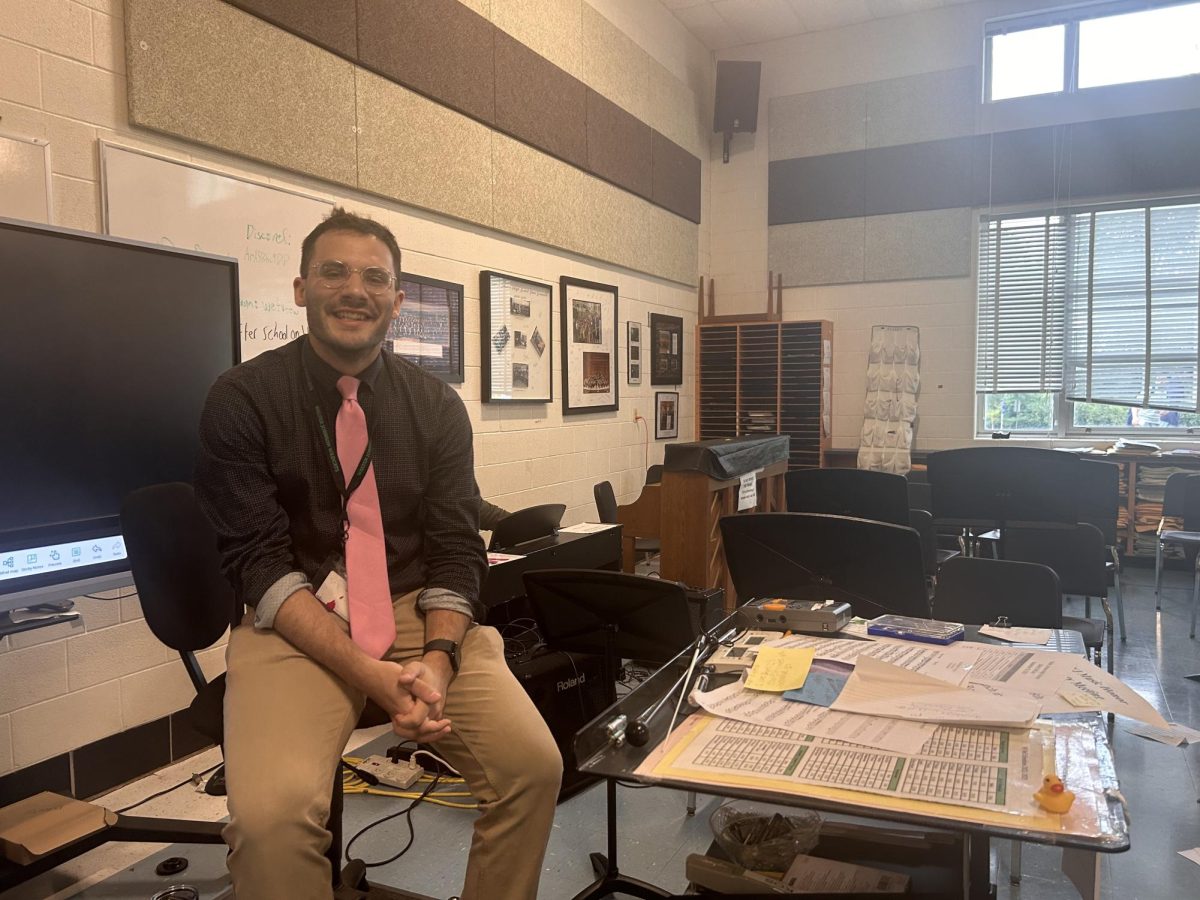The summer before her freshman year of high school, senior Tiffany Gibson noticed her neck was unusually swollen. After seeing a pediatrician, she was directed to an endocrinologist, who diagnosed her with hyperthyroidism, or Graves’ disease. Graves’ is an autoimmune disease in which the immune system attacks the thyroid, causing it to overproduce hormones. Gibson experienced many symptoms that affected both her physical and mental health.
“I was so tired all the time; I’d get 8 hours of sleep and still be so exhausted … if I didn’t take my medication, I could get really skinny really fast; I had hair loss, I couldn’t do any physical activity, mood swings, irritation. It was horrible because my family was affected by it because of how I would treat them. It wasn’t really me,” Gibson said.
The largest setback Gibson faced was the inability to participate in physical activities. Previously an avid athlete, Gibson was forced to give up many of the pastimes she enjoyed, including soccer, her favorite sport.
“When I got diagnosed, I did like 10 sports beforehand, so I had to stop all physical activity, because the side effects that I had was an accelerated heartbeat. I’d be sleeping, and it’d be 130 beats per minute,” Gibson said.
This took a toll on her mental health as she often felt set apart from her peers. Her state worsened when the Covid pandemic hit.
“I was really depressed during Covid. I didn’t care enough about myself to properly take my meds … I felt different already, and I happened to be compared to other kids. I could see them running around, and I wasn’t able to, so it just really sucked,” Gibson said. “During school when I had it, my grades dropped really bad because I could not focus, I was really tired and I didn’t get any accommodations, so I just felt like an idiot for not being able to do anything.”
Gibson continued to take medication to balance out her hormones until she could receive a more permanent treatment. She was presented with two options.
“Removal of your thyroid through surgery, but there’s different side effects. You can go mute from it. Or you can get radioactive thyroid treatment, where you go to the hospital and you get treatment through a radioactive pill that dissolves the thyroid from inside of you,” Gibson said.
Ultimately, Gibson’s father, Kiser Kahsay, chose the radioactive treatment, unwilling to risk mutism from surgical removal. However, the treatment also came with an adverse side-effect. This past fall, Gibson developed hypothyroidism, a variation of Graves’ in which her thyroid began to under produce.
While the outcome is not what Gibson had hoped it would be, she is encouraged by her family to remain diligent and maintain a proper medication routine.
“Just like Tiffany, it affected us as parents since we were consistently inquiring about how she was feeling and if she took her medicine in the morning or the evening, constantly checking her blood work, or heart rate and making sure she was following directions from a doctor. Her routine became a family routine. Even her little sister, who is now nine, checked up on her and made sure everything was okay,” Kahsay said.
Gibson has found many friends who uplift and support her, yet she hopes her peers realize that her disease is not her identity.
“Whenever I do tell people, I feel like they pity me. I don’t like how sometimes people will treat you differently just based on a disease, some physical attribute, [or] something that you have that sets you differently from other people,” Gibson said.
Despite constant setbacks, Gibson persisted through all four years of high school while battling Graves’.
“It gets better. It just takes a lot of time,” Gibson said.



![Senior Tiffany Gibson has dinner with her parents and her nine year old sister. Gibson's family has been her largest source of support throughout her treatment process.
"[My dad] helped me through it. He was the one who’d take me to my doctor’s visits, he was trying to make me try to take my medication on time, even though he’d get angry when I didn’t take it. I had to do blood work, so he would always find out. He would always try to get me to take it and remind me," Gibson said.](https://wjpitch.com/wp-content/uploads/2023/03/92iA4Tg7fGWMhmk9DKWf7Q6UQQ4p0LYeBobwwvV7-900x672.jpg)




